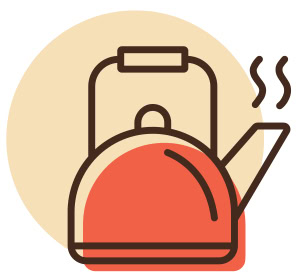What Hobbies/Activities Make You Better at Managing Supply Chains?

Readers share how hobbies like running, yoga, puzzles, and team sports develop key skills—resilience, flexibility, problem-solving, and communication—enhance supply chain and logistics management performance.
Soccer Kickstarts Success
 Soccer shows that teamwork, timing, and fast decisions are important. One mistake can impact the entire team, just as a single issue can halt the entire supply chain. Playing football helps me see how working together and staying flexible are important in both.
Soccer shows that teamwork, timing, and fast decisions are important. One mistake can impact the entire team, just as a single issue can halt the entire supply chain. Playing football helps me see how working together and staying flexible are important in both.
–Vitaliano Tobruk
Supply Chain Industry Practice Lead
Moody’s
In soccer, you must envision the end goal, be four passes ahead, communicate with your teammates, and leverage everyone’s strengths. We keep our eyes on the entire field like supply chain leaders who must have a complete end-to-end understanding to guide their team. You also must be ready to tackle unpredictable challenges or disruptions as one team.
–Emily Gallo
SVP and General Manager
Cardinal Health OptiFreight Logistics
Making free, customized birthday cakes for children who may otherwise not receive one. I’ve been providing them in recent years. Noticing and responding to needs inside and outside the workplace is critical for innovative growth, and it’s a lesson that has made me a better manager in logistics.
–Caroline Guild
Sustainability Manager
Kenco
Codeword puzzles and word searches—they train you to uncover hidden connections and think laterally. That same mindset is invaluable in supply chain—spotting inefficiencies, decoding complexity, and aligning the moving parts into one clear, strategic picture.
–Sharon Forder
CMO
Sana Commerce
 Off-the-beaten-track hiking. The rough terrain and unexpected obstacles hone the lateral thinking skills required to find the most efficient route to the final destination—whether that is around, over, or under the obstacle.
Off-the-beaten-track hiking. The rough terrain and unexpected obstacles hone the lateral thinking skills required to find the most efficient route to the final destination—whether that is around, over, or under the obstacle.
–Deb Deakin
Director of Operations
ePost Global
Playing cards. In supply chain management—just like in a card game—you have to learn to play the hand you’re dealt. It’s important to plan for every possible scenario and be able to pivot strategically and in the moment.
–Brian Cromer
Managing Director, Global Supply Chain Practice
TBM Consulting Group
The Fresh Connection is an excellent game to sharpen your supply chain skills and it is exciting to see how well you can optimize various scenarios.
–Lisa Anderson
President
LMA Consulting Group
Having kids. Managing a diaper bag is like running a high-stakes inventory system—missing the wipes is a crisis. There’s real-time route optimization (nearest bathroom always), strict SLAs for naps, and just-in-time snack delivery to avoid meltdowns.
–Alex Joyce
Strategic Account Executive
Gather AI
 Orchestrating a family getaway is supply chain bootcamp in disguise: Juggle Aunt Sue’s beach dream with kids’ roller-coaster quota, slot flights, Tetris-pack suitcases, chart backup routes for tantrums and storms, and monitor bookings like live inventory.
Orchestrating a family getaway is supply chain bootcamp in disguise: Juggle Aunt Sue’s beach dream with kids’ roller-coaster quota, slot flights, Tetris-pack suitcases, chart backup routes for tantrums and storms, and monitor bookings like live inventory.
–Shannon Hynds
CEO
Quickcode
Settlement games like Timberborn, with resource management, help improve supply chain skills by introducing risk and disruption. They train you to plan for worst-case scenarios and test if your strategy holds.
–Nathaniel East
Operations Manager
TA Services
Being an armchair quarterback. I enjoy watching sporting events and analyzing coaches’ strategies to identify opportunities for better team performance. I bring this same analytical mindset to the supply chain world, where I take an “outside-in” approach—viewing challenges from an employee or customer perspective.
–Todd Gentry
Vice President, New Business Development
CHEP U.S.
The board game Container. You’re juggling production, pricing, and shipping all while trying to read the market and stay one step ahead. It’s surprisingly close to real supply chain thinking.
–Tony Crisafulli
VP Sales
Odyssey Logistics
 Sailing. It is a constant balancing of where you want to go, while managing the weather, the wind, the lines; balancing how much and which kind of sails to use to most effectively accomplish your mission—all while external influences have very real impacts on your ability to execute.
Sailing. It is a constant balancing of where you want to go, while managing the weather, the wind, the lines; balancing how much and which kind of sails to use to most effectively accomplish your mission—all while external influences have very real impacts on your ability to execute.
–Joe Adamski
Senior Director
ProcureAbility
Pickleball. Lessons from pickleball apply to managing supply chain logistics: 1) Pick a good partner, 2) keep your eye on the ball, and 3) react fast. But beyond that, after playing tennis for a very long time, pickleball taught me how to adapt when the game changes.
–Doug DeLuca
Product Marketing Manager
SAP Business Network
Games like Catan challenge you to manage scarce resources and capacity constraints, sharpening skills in resource allocation and negotiation. Ticket to Ride teaches strategic route planning across regions and countries.
–Mike Berry
SVP, Services
TrueCommerce
Cooking. From sourcing fresh ingredients to planning meals and executing recipes, cooking reflects the end-to-end process: procurement, planning, production, and delivery. It’s a practical, everyday—and delicious— way to practice coordination, timing, resourcefulness, and adaptability.
–Jennifer Chew
VP, Solutions and Consulting
Bristlecone
 Making coffee. Whether it’s pour-over or drip, the outcome depends on timing, temperature, and small details. One miss, and it’s off. It’s a daily reminder consistency doesn’t come from tools alone—it comes from refining the process. Supply chain is no different. Technology can enhance performance, but it won’t fix a broken foundation. Get the fundamentals right.
Making coffee. Whether it’s pour-over or drip, the outcome depends on timing, temperature, and small details. One miss, and it’s off. It’s a daily reminder consistency doesn’t come from tools alone—it comes from refining the process. Supply chain is no different. Technology can enhance performance, but it won’t fix a broken foundation. Get the fundamentals right.
–Karli Sage
Sr. Director, Emerging Technology
Southern Glazer’s Wine & Spirits
MMORPGs (massively multiplayer online role-playing games) take the lessons I learned from team sports further—forming parties, assessing skillsets, assigning roles, and working together (to take down the boss!). Both build leadership through fast decisions, tight teamwork, and real-time coordination.
–Vee Srithayakumar
Product Manager
Tecsys
Strategy or simulation games, such as Risk or Chess, can improve abilities in forward thinking around resource management and logistics skills while games with trade and negotiation elements can enhance decision-making under uncertainty, and problem-solving activities, like puzzles or escape rooms, help build strategic thinking, all useful skills when working in this continually evolving sector.
–Mark Roberts
UK Public Sector Director
JAGGAER
My daughter was a travel softball player for 10 years. Traveling with her and coordinating the logistics of hotels, practices, and games definitely sharpened my skills at keeping the supply chain organized and moving!
–Heather Spencer
Carrier Coordinator
iGPS Logistics
Tetris Forms The Foundation
 When packaging and shipping, just as in Tetris, it is critical to optimize the use of every available inch of space. You’re penalized both for leaving space unused—you’re decreasing the amount you can ship—and increasing costs (earning fewer points) while having to work harder to fill gaps. Just be thankful success doesn’t drop more pieces on the competition.
When packaging and shipping, just as in Tetris, it is critical to optimize the use of every available inch of space. You’re penalized both for leaving space unused—you’re decreasing the amount you can ship—and increasing costs (earning fewer points) while having to work harder to fill gaps. Just be thankful success doesn’t drop more pieces on the competition.
–Josh Dunham
CEO and Co-founder, Reveel
My first thought is Tetris (I’m old-school). But I crowd-sourced the question to my younger crew and they said: Factorio for throughput calculus, chess for branching decision trees, competitive Pokemon for probabilistic inventory calls, and weekend geocaching for scrappy last-mile hustle. Ten hours in any of those schools train you harder on buffers and bottlenecks than a stack of Lean Six Sigma slides.
–Nick Rakovsky
CEO, DataDocks
Being your own contractor in building a house—just when you think all the sub-contractors are lined up to perform the tasks, some of them tell you that they have the wrong spec. materials, ran out of supplies or bad weather is stalling the project. The long tail of the contractor’s journey is very much like the supply chain journey.
–Vick Vaishnavi
CEO
ETQ
Video games enhance skills vital for supply chain management. Players constantly assess, react and adapt to changing conditions, similar to navigating disruptions and shifting demands. Multiplayer scenarios foster collaboration and teamwork, essential for optimizing supply chain performance. These activities build proficiency in adaptability, collaboration and real-time decision-making.
–Ann Marie Jonkman
Vice President, Industry Strategies
Blue Yonder
 White water rafting has taught me more about supply chains than any business book. You must adapt to changing conditions, anticipate what’s ahead, and coordinate with your team without perfect information. Rafting teaches you to be prepared but flexible. Like in logistics, when you’re going down a river, planning too rigidly is dangerous.
White water rafting has taught me more about supply chains than any business book. You must adapt to changing conditions, anticipate what’s ahead, and coordinate with your team without perfect information. Rafting teaches you to be prepared but flexible. Like in logistics, when you’re going down a river, planning too rigidly is dangerous.
–Matt Lhoumeau
CEO
Concord
Golf or playing sports in general. Golf is a great way to network, but sports in general build resiliency and the ability to adapt to conditions that are always changing. These skills are crucial for navigating the dynamic nature of the logistics industry.
–Jeff Goins
Director of Carrier Sales
Circle Logistics
I’m drawn to activities that require pattern recognition and systems thinking, whether chess or home renovation. Seeing how pieces fit together sharpens your sense for how to remove friction in a supply chain.
–Dennis Moon
COO
Roadie
Our Warehouse Game is a simple simulation that teaches a hard truth: you can’t do everything at once in a warehouse. You have limited labor and doors; incoming orders that don’t wait. Success depends on sequencing tasks, resolving conflicts, and choosing priorities.
–Keith Moore
CEO
AutoScheduler.AI
 Snowboarding gives mental clarity to navigate obstacles. This in turn helps me with solving complex challenges. Other ways that people can sharpen their problem-solving skills is through strategy and puzzle games, both digital and physical.
Snowboarding gives mental clarity to navigate obstacles. This in turn helps me with solving complex challenges. Other ways that people can sharpen their problem-solving skills is through strategy and puzzle games, both digital and physical.
–Oana Jinga
Co-founder, Chief Commercial and Product Officer
Dexory
Strategy games like Factorio or Cities: Skylines sharpen your ops mindset, balancing resources, optimizing flow, and solving chaos in real time. Even chess helps as every move decides the next. Great logistics is just great gameplay—at scale.
–Nagendra Rao
President, Sales
Trigent Software
